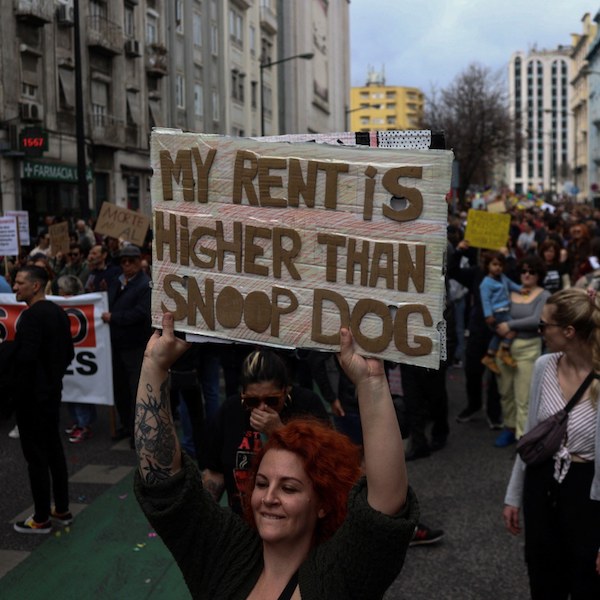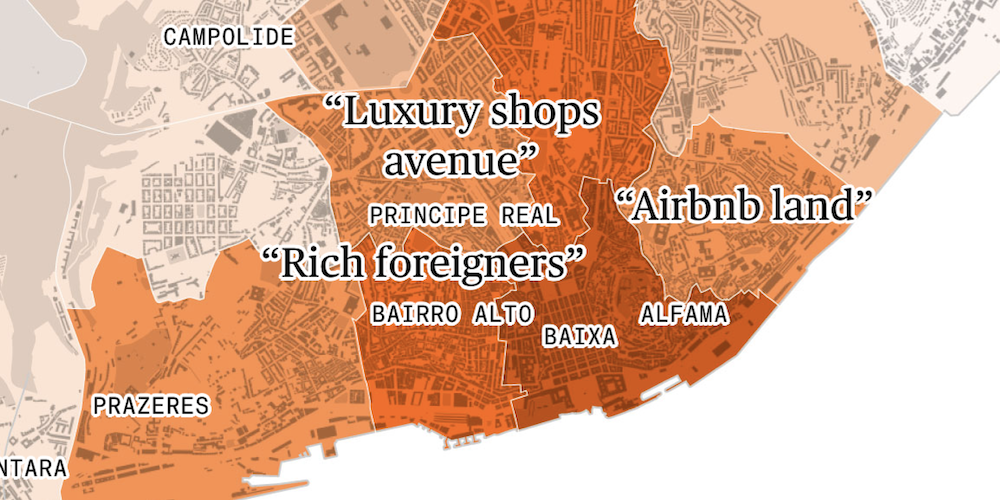Portugal has been going through a severe housing crisis that can be felt more intensely in big cities such as Lisbon and Porto. It is a complex problem, but the quick way to explain it is that there aren’t enough properties to cover the increasing demand. Many places are registered as alojamento local, to be offered in platforms like Airbnb for short-term rentals, and the few that are available to be rented long-term are unaffordable.

Furthermore, the requirements to rent a place are completely out of control with landlords asking for up to six months of rent payments in advance. Locals living on a minimum wage and immigrants have been the most affected by this crisis, while some locals have had to move to the outskirts of the city to find an affordable place to live, immigrants live in precarious and dangerous situations.
A quick search on Idealista.pt shows that, if you want to live in Lisbon in a one room apartment, the minimum amount you’d have to pay is 800 euros per month for a place located in the area of Benfica. It would be a minimum of 950 euros per month to live in a one room apartment in one of the more central areas. These values do not include utilities such as electricity, water or internet.
Taking into account that the minimum wage in Portugal, which was raised in January 2023, is currently 760 euros per month, it is easy to imagine why locals have been forced to move out of Lisbon.
Housing is a topic that generates mixed opinions. On the one hand some people argue that you should be able to rent your properties for whatever price you consider, on the other hand, having a roof over your head shouldn’t be a luxury but a human right.
Government measures
Amid the housing crisis the Portuguese government is in the process of approving a set of measures to alleviate the crisis that include the suspension of Golden Visas (Visto Gold) in June. This type of residence permit was approved in 2012 and allowed non-EU citizens to live in Portugal if they invested in the country through a capital transfer or the purchase of a property.
This last one was the most common way of obtaining the Visa, but it wasn’t cheap. The minimum value to invest was 500,000 euros. The end of the Golden Visa means that it won’t be possible to obtain a residence permit through the purchase of a property.
This type of Visa needs to be renewed every two years.
The Prime Minister António Costa explained that people who are currently living in Portugal thanks to a Golden Visa will be able to renew it if their purchase of a property was meant for their own living purposes or for a long-term rental. If these conditions apply, the permit will be changed to an immigrant entrepreneur visa also known as StartUp Visa.
Although some people are not happy with this decision, others argue that, besides affecting the housing market, Golden Visas were promoting corruption since the origin of the funds used for investment weren’t investigated. There have been several scandals about people obtaining this residence permit in Portugal and being involved in criminal activities in their countries of origin.
–––––––––––
Read more about Portugal here in Dispatches’ archives.
Mónica da Silva is half-Venezuelan, half Portuguese and has lived in Venezuela, Portugal, Spain and Germany. She has studies linguistics and has a Bachelor’s Degree in European Studies. Besides contributing to Dispatches, she works remotely as an English teacher, which allows her to be on the move as often as she wants.














